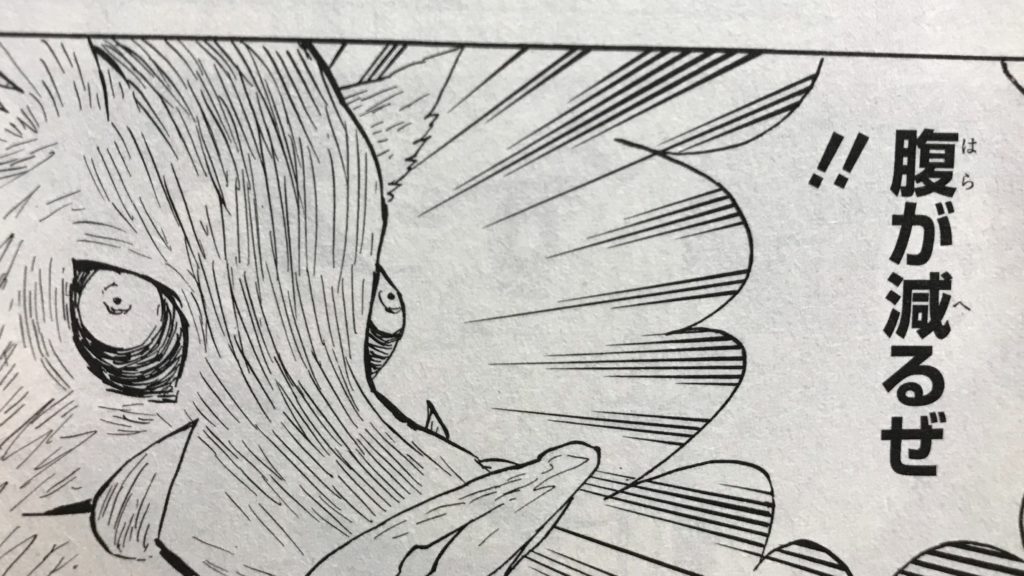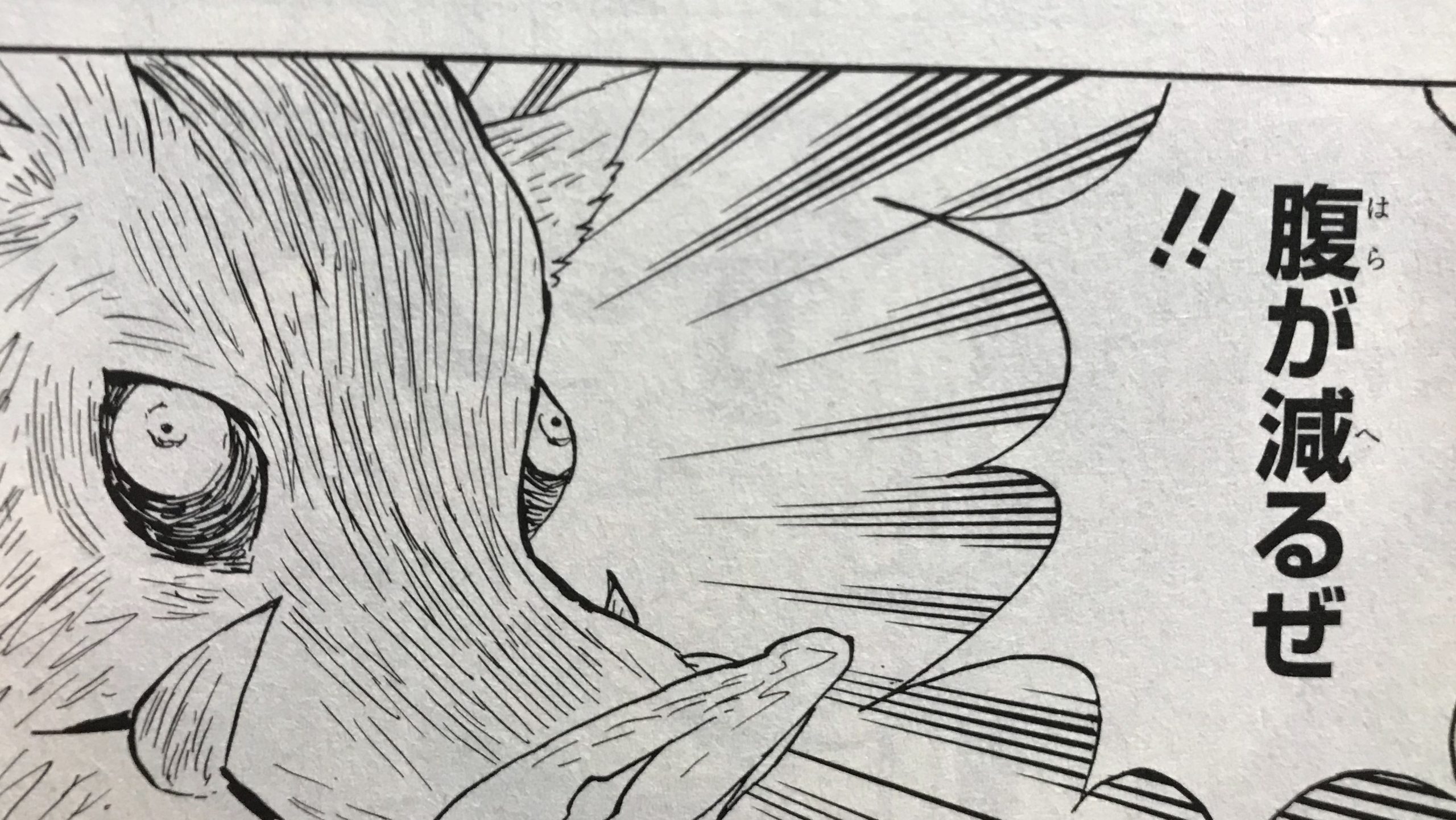Welcome to Kimetsu no Japanese, site for learning Japanese from a manga Demon Slayer.
Today’s topic
Ch.28 Vol.4
Zenitsu Agatsuma (我妻 善逸), Inosuke Hashibira (嘴平 伊之助)
Reference source : 五峠呼世晴 (2016) 鬼滅の刃4 集英社
腹が減るぜ!!
I’m hungry!
腕が鳴るだろ・・・・・・
He means he’s hungry for battle.
Reference source :KOYOHARU GOTOUGE. (2019). DEMON SLAYER : KIMETSU NO YAIBA. VIZ Media, LLC


I’m always interested in how to translate Japanese idioms into English or other languages because it doesn’t always mean literally as written and it’s especially difficult to translate when an original piece plays on words.
Here Inosuke uses a phrase incorrectly and Zenitsu correct it using an idiom. I found it a good translation! So let’s see their phrases and what the idiom really means.
Lesson 1 | I’m hungry
| JPN | 腹が減るぜ |
| JPN♪ | hara ga heru ze |
| ENG | I’m hungry |
| WORD | JPN♪ | MEANING |
|---|---|---|
| 腹 | hara | stomach |
| が | ga | <particle> making subject/object |
| 減る | heru | to decrease |
| ぜ | ze | <particle> put at the end of a sentence, meaning dicision, emphasis Sounds old-fashioned but used in ads or novels, comics Usually used by men |
Explamation
“Hara ga heru” is a rough expression of “being hungry”. We usually say more politely “お腹が減る“ or “お腹が空く*”
* 空く(すく suku) : to become empty
When you say “I’m hungry now”, you may as well use a past tense or present tense.
| Past tense | お腹が減った(polite: お腹が減りました) | onaka ga hetta (onaka ga herimashita) |
| Present tense | お腹が減っている(polite: お腹が減っています) | onaka ga hetteiru (onaka ga hette imasu) |
If you want to obtain someone’s consent, you can put “ne” at the end, like
“お腹が減ったね” (onaka ga hetta ne)
“お腹が減りましたね” (onaka ga herimashita ne)
Lesson2 | I’m itching to do it
| JPN | 腕が鳴るだろ |
| JPN♪ | ude ga naru daro |
| ENG | You mean “I’m itching to do it” |
| WORD | JPN♪ | MEANING |
|---|---|---|
| 腕 | ude | arms, skill |
| が | ga | <particle> making subject/object |
| 鳴る | naru | to sound, ring, rumble |
| だろ | darn | <particle> to express an uncertain decision polite expression: でしょう(deshō) |
Explanation
“腕がなる”, this idiom is used when you are very confident and can hardly wait to prove and show your skills or abilities.
Let’s see a few examples.
| JPN | JPN♪ | MEANING |
|---|---|---|
| 強い鬼に出会い、伊之助は「腕がなるぜ!」と言った。 | tsuyoi oni ni deai, Inosuke wa [ude ga naroze!] to itta. | When Inosuke came across a strong demon, he said “I can’t hardly wait to show my skills!”. |
| 善逸は 「腕がなる」など思いもしない、いつも逃げたい。 | Zenitsu wa [ude ga naru] nado omoi mo shinai, itsumo nigetai. | Zenitsu never thinks “I’m itching to put my skills to use”, but he always wants to run away. |
Idioms using 腕( うで ude : arms)
腕(ude) means “arm” but also has a meaning of “skill” and Japanese has lots of idioms using “腕”.
| JPN | JPN♪ | MEANING |
|---|---|---|
| 腕が上がる | ude ga agaru | to gain in skills, to improve |
| 腕が落ちる | ude ga ochiru | to get out of practice, to lose one’s touch |
| 腕が立つ | ude ga tatsu | efficient, talented, skilled |
| 腕を磨く | ude wo migaku | to improve one’s skill, brush up on one’s skill |
| 腕をふるう | ude wo hurū | to show off one’s skill |
| 腕の見せ所 | ude no misedokoro | a time to show off one’s skill |
That’s all
How was this comedy scene in Japanese?
It is funny to see Inosuke makes mistakes with a plenty of confidence and Zenitsu corrects it shivering…
Anyway I’m sure Japanese children learn lots of idioms from manga. (Probably I did too!)
Manga is also good for learning other languages. Read Kimetsu no Yaiba a lot and learn Japanese a little here in Kimetsu no Japanese!
Thank you for reading.



Comment